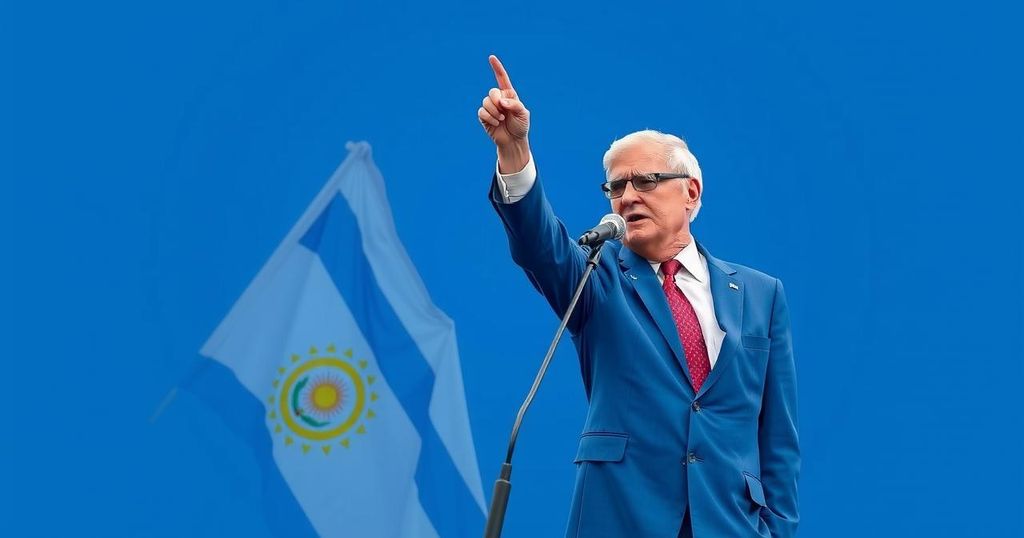Uruguay’s Presidential Run-Off Showcases Commitment to Democratic Coexistence

Uruguay’s recent presidential run-off saw candidates Alvaro Delgado and Yamandu Orsi compete in a peaceful atmosphere, highlighting commitments to democratic coexistence. Orsi, representing the leftist Broad Front coalition, aims to raise wages for low-income workers, while Delgado of the National Party emphasizes economic streamlining and trade deals. Both candidates pledged to respect the election’s results, showcasing Uruguay as a stable democratic model amidst regional turmoil.
In Uruguay, the recent presidential run-off election showcased a contrasting political atmosphere compared to other Latin American nations, where electoral violence and protests have been more prevalent. Conservative candidate Alvaro Delgado and leftist contender Yamandu Orsi advanced to this final round after both secured significant support in the October general elections, where Orsi led with 44 percent and Delgado garnered 27 percent of the votes.
The election significantly emphasized themes of democratic coexistence, a principle both candidates upheld during their campaigns. Orsi, a former history teacher and candidate for the left-wing Broad Front coalition, campaign emphasized wage increases for lower-income populations. Meanwhile, Delgado, the ruling National Party’s representative, focused on reducing bureaucratic processes and establishing trade agreements with countries like China.
Notably, both candidates have shown commitment to unity, pledging to respect the outcome of the election regardless of the result. The calm demeanor observed during the election was highlighted by third-place candidate Andres Ojeda, who remarked on the peaceful electoral environment that could go unnoticed by outsiders.
Furthermore, support from prominent figures such as former President Jose Mujica, a revered leftist leader, has buoyed Orsi’s candidacy, underscoring the historical continuity between the past administration and the present electoral contest. Due to outgoing President Luis Lacalle Pou’s inability to run for a second consecutive term, this election marks a critical juncture for Uruguay, with voters looking to decide the future direction of their country’s policy and governance.
Uruguay has garnered recognition for its stable democratic structure, particularly notable following a shift in power from the left-leaning Broad Front coalition to the conservative National Party in 2019. This election cycle unfolds amidst a broader context in Latin America, characterized by turmoil in countries such as Mexico and Venezuela, where political violence and fraud allegations overshadow the electoral processes. In contrast, Uruguay has maintained a peaceful electoral environment, with an emphasis on political continuity and collaborative governance. The absence of intense conflict during this electoral period reaffirms Uruguay’s position as a model for democratic practice within the region, as evidenced by the mutual respect pledged by both candidates in the run-off.
The presidential run-off in Uruguay, featuring candidates Alvaro Delgado and Yamandu Orsi, reflects a significant moment for the nation, characterized by an emphasis on democratic coexistence. Amidst a backdrop of tumult in other parts of Latin America, Uruguay’s electoral process was marked by peace and collaboration. The candidates’ commitment to respect the election’s outcome and work together underscores a hopeful trajectory for Uruguay’s political future, signaling potential for economic improvement and continued democratic stability.
Original Source: www.aljazeera.com








